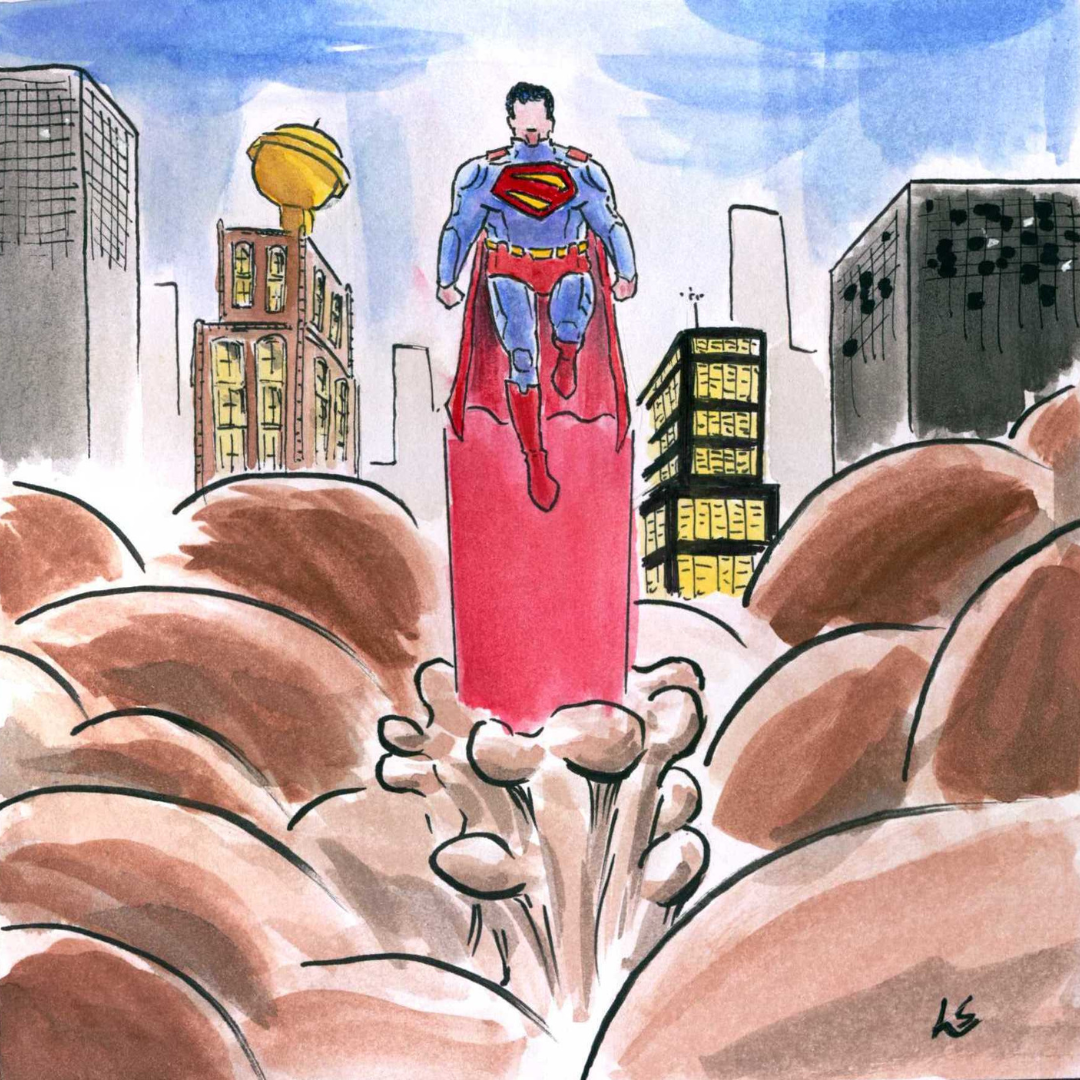Living like Ben Franklin for a week
Before the invention of mobile calendars, modern self-help books and life hacks from BuzzFeed, Benjamin Franklin gave us a guide on how to organize and live our lives.
Franklin’s 13 virtues and the daily schedule he created are found in his autobiography, published in 1791. Within the book, he detailed his version of a model life and the qualities he found most important.
As a college student in need of some virtue, and one who attends school in Philadelphia, why not imitate the man whose unwavering presence has dominated Philadelphia for more than 200 years?
With this in mind, for one week I forgot everything I knew about the organization and current structure of my life and decided to live according to Franklin. I modified his exact schedule slightly to work with my classes and decided to focus on five of the 13 virtues: order, resolution, industry, frugality and cleanliness. Was there anything I could learn from Franklin? What would I gain by living like him for a week?
Fortunately, I found the perfect person to ask: Jeffrey Hyson, Ph.D, assistant professor of history, whose classes involve reenactments of situations or characters from the past. Hyson said that studies on Reacting to the Past courses have improved students’ emotional intelligence; most notably, their empathy.
“What role-playing allows students to do is to feel themselves in that moment,” Hyson explained. “Why did this person make the decision that he or she did? What were the circumstances of this person’s life? What were they reading? Who were they interacting with?”
While my original goal was not to empathize with Franklin. Hyson said I would likely end up having a better understanding of Franklin by the end of my exercise.
“By however briefly occupying Franklin’s point of view, you’re trying to get a sense of why [he thought] the way he did,” Hyson said.
My experiment began the following Monday. For one week, I woke up every day and rolled out of bed at 6 a.m. This was the worst part about living like Franklin. I sauntered over to Campion Dining Hall and began to plan out my day, laying out exactly what work I was going to do and when I was going to do it.
During this time I also addressed the simple question Franklin proposed to himself every morning: “What good shall I do this day?” This was my favorite aspect of his routine, as it gave my day significance. Whether it was helping a classmate, calling my parents, holding doors for people or complimenting a friend, I was ready to do it. These small acts gave my day purpose and hopefully made others’ days at least a little better.
Between and after classes I was able to put two more of the virtues into practice: order and industry. Throughout the week, when I wasn’t in class, I was always doing something. On industry, Franklin wrote: “Lose no time; be always employ’d in something useful; cut off all unnecessary actions.” I did just that – no naps, no television, and very limited time on my phone throughout the day.
Resolution was the last and most important of Franklin’s virtues that I chose. He defines resolution as “Resolve to perform what you ought; perform without fail what you resolve.” With this newfound resolve, I got much more work done and finished it more efficiently. This left time for me to take advantage of the hours at the end of the day in which Franklin listened to music or made conversation with people, and I did the same.
At the end of every day, I asked myself a final question. As Franklin phrased it, “What good had I done today?” This type of reflection was a perfect way to end the day. I looked back at my shortcomings and successes, assessed my own actions and figured out what I could improve upon. I ended my week feeling accomplished, but I was still left with more questions than answers. I tried to follow Franklin’s schedule, but there had been slips along the way. There were days I woke up a little late or purchased food that I didn’t need. Was it even possible to live by Franklin’s model life in the long-term?
If only Franklin were here so I could get a first-person narrative of his life and intentions. Unfortunately, he died in 1790, so I went for the next best thing: a Franklin impersonator – or rather, interpreter. For the past 15 years, working actor Bill Robling has been interpreting Franklin in Philadelphia. Yet he says he is only scratching the surface when it comes to really knowing and understanding the character of Franklin, a testimony to the man’s complexity and three-dimensionality. Robling said he has been able to get a much deeper understanding of Franklin because as an actor, he gets to “portray Franklin from the inside out,” as opposed to the inverse of just normally studying him.
“I try to relate the character of Franklin and his characteristics to my own and understand them on a human level,” Robling said.
Robling said by doing this, he more deeply understands Franklin on a level that cannot be achieved through merely studying him from the outside.
Ultimately, Franklin’s insistence on striving for perfection is my biggest takeaway from this experiment. The idea of trying to reach an unachievable goal is somewhat paradoxical, but it makes sense. Franklin realized that perfection was unachievable, but by striving towards it, one can better oneself. And with my newfound sense of humility, I couldn’t agree more.














































